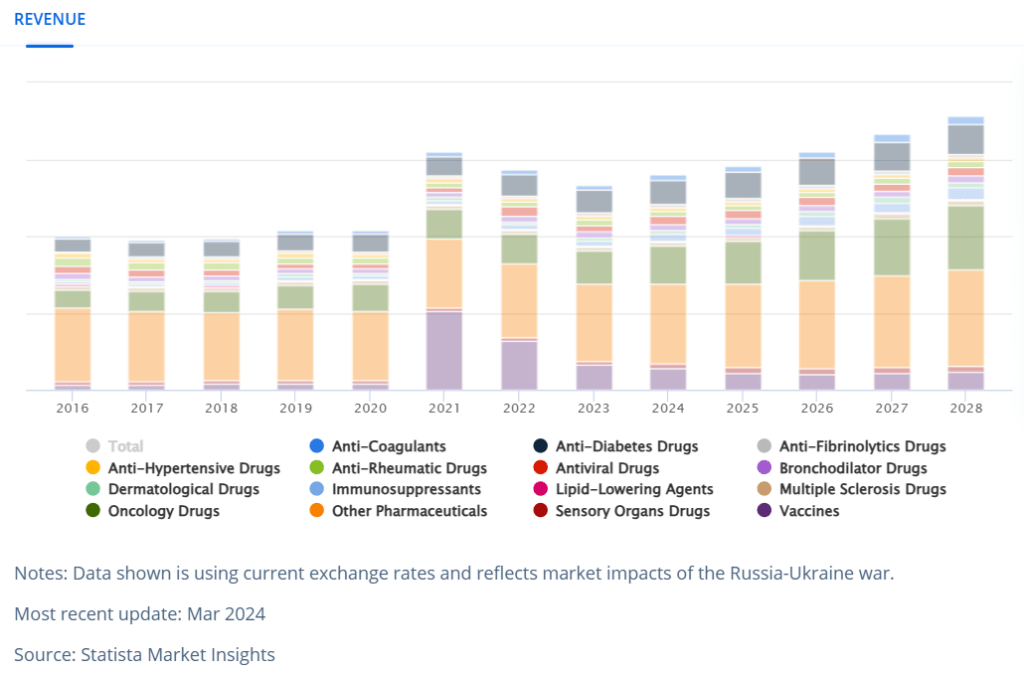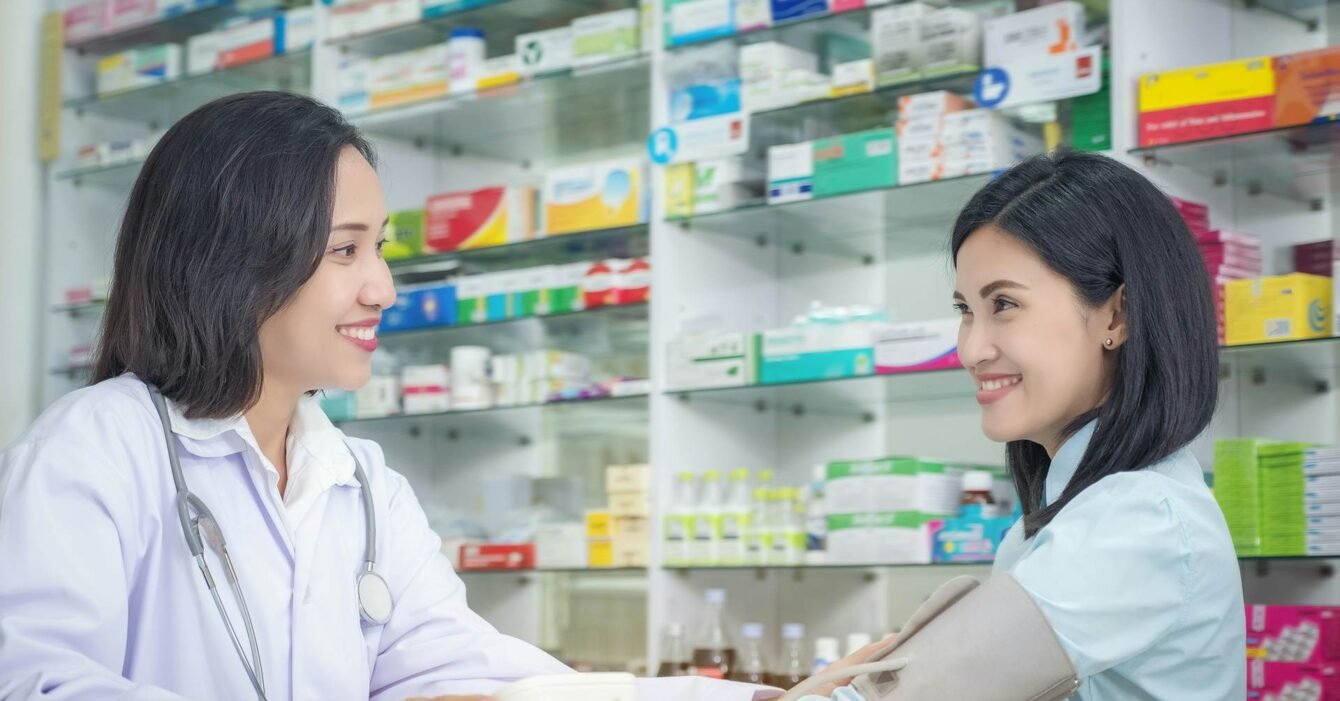Market Insight: Pharmaceuticals in Indonesia
Indonesia, recognized as the world’s fourth most populous country, is home to a burgeoning pharmaceutical market. The Indonesian pharmaceuticals market’s revenue is expected to reach USD 3.52 billion by 2024. This growth is driven by a steady annual rate of 6.04% from 2024 to 2028, culminating in a market volume of USD 4.45 billion by 2028. This rapid development is significantly influenced by an increase in demand for traditional herbal remedies alongside modern pharmaceuticals. In this article, our experienced Indonesia healthcare consulting team will provide insights that are crucial to navigating the market.

Evolving Customer Preferences in Indonesia
Indonesian consumers have increasingly become health-conscious, fueling a growing demand for pharmaceutical products. The rising middle class in Indonesia is also a critical driver of this demand, pushing for higher-quality healthcare solutions, including pharmaceuticals. Among various segments, Oncology Drugs are set to lead, projected to achieve a market volume of USD 0.62 billion in 2024. Consequently, both branded and generic drugs are witnessing heightened demand. This shift towards health consciousness is expected to sustain the market’s growth momentum.
Emerging Market Trends in Pharmaceutical
The Indonesian pharmaceutical market has been expanding steadily in recent years, underpinned by several key trends. One notable trend is the enhanced availability of healthcare services, particularly in rural areas. This expansion has increased demand for pharmaceuticals as more people gain access to healthcare. Additionally, the rise of e-commerce platforms has revolutionized drug purchasing, making it easier for consumers to obtain pharmaceutical products, especially in regions where traditional pharmacies are limited.
Local Market Dynamics
Indonesia’s pharmaceutical market is characterized by its fragmentation, hosting numerous domestic and international players. This competitive landscape has spurred companies to adopt aggressive marketing and pricing strategies to capture market share. Furthermore, the Indonesian government has implemented various measures to boost access to healthcare and pharmaceutical products. Notably, the national health insurance program, covering a substantial portion of the population, has significantly increased pharmaceutical demand, especially among lower-income consumers.
Macroeconomic Influences
Several macroeconomic factors contribute to the growth of the Indonesian pharmaceutical market. The expanding middle class, increasing urbanization, and a relatively stable political environment provide a favorable backdrop for market growth. The government’s substantial investment in infrastructure has also improved access to healthcare services and pharmaceutical products. These factors collectively create a conducive environment for the sustained expansion of the pharmaceutical market.
Future Outlook
The Indonesian pharmaceutical market is poised for continued growth in the foreseeable future. As the middle class continues to expand and healthcare service demand rises, the market for pharmaceutical products is expected to thrive. Additionally, the government’s ongoing efforts to enhance access to healthcare and pharmaceutical products will likely bolster market growth further.
For businesses and stakeholders involved in this burgeoning sector, leveraging our expert team in Indonesia healthcare consulting can assist you in understanding these dynamics to capitalize on the market’s potential. By staying abreast of consumer preferences, market trends, and macroeconomic factors, companies can strategically position themselves to leverage the growing opportunities in Indonesia’s pharmaceutical sector.

